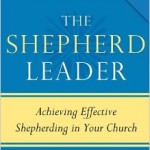
In his classic book Knowing God, JI Packer wrote, “It is here, in the thing that happened at the first Christmas, that the profoundest and most unfathomable depths of the Christian revelation lie . . . The more you think about it, the more staggering it gets. Nothing in fiction is so fantastic as is this truth of the Incarnation.”
To see the truth more fantastic than fiction we turn to the well-known story of shepherds and singing angels on that first Christmas night in Luke 2. In the short span of one verse the angels reveal the purpose and wonder of Christ’s incarnation. We might summarize their chorus by saying, “Jesus came to give His father glory and His people peace.” This is the purpose of Christmas according to the angels. I want you to encourage you with three things from the angels song: 1) Sing with Joy this Christmas, 2) Sing in Peace this Christmas, and 3) Sing from Love this Christmas.
SING WITH JOY THIS CHRISTMAS
They sang, “Glory to God in the highest.” What does the song’s first syllable tell us? That God is supremely glorified in salvation. The Bible tells us that everything in creation resounds unto God’s glory. He is glorified in every drop of dew that falls on the morning grass. He is glorified in every plant that blooms in forests men rarely see. He is glorified in the bird that glides on His air. From the smallest minnow to the largest whale, the creatures in the sea sing of His glory. The bright stars and far of galaxies proclaim His glory to the universe. Every lightning bolt and crack of thunder contributes to creation’s concert of God’s glory. But creation does not represent the highest movement in this symphony of glory. It’s the incarnation of Christ that finds the angels singing glory to God in the highest. Spurgeon said, “There is more melody in Jesus born in the manger, than there is in worlds upon worlds rolling their grandeur round the throne of the Most High.”
How is it that God is so supremely glorified in the birth of Christ?
- Jesus’ birth glorifies God’s wisdom. This is what it would take to save men, God become man. From eternity past God decreed His Son would come and add humanity’s flesh to His divine nature. What wisdom!
- Jesus’ birth glorifies God’s justice. No creature could satisfy God’s justice toward the sin of men. Only Jesus, the Son of God, perfect in nature and obedience, can satisfy His just Father. So the birth of Jesus uncovers the glories of God’s wisdom, justice, and thirdly . . .
- Jesus’ birth glorifies God’s holiness. Our holy God demands holiness from His creatures, but we all have fallen short. Holiness is impossible for us to grasp or achieve. The demand of holiness can only be met in Christ, the Holy One. Thus it was that He came.
- Jesus’ birth glorifies God’s mercy. He is just and holy, as such He stands opposed to all our sin. But see His mercy in Christ. The Father does not desire to leave men in sin, He is going to use them as mirrors of His mercy. And so Jesus came as the ultimate merciful gift for sinful man. His mercy will triumph over man’s misery.
So yes, creation glorifies God, but not in the way Jesus’ incarnation and redemption does. Do you see how we are to sing with joy this Christmas? His wisdom, justice, holiness, and mercy are instruments for our joy.
Every Christmas season I like to listen to Handel’s famous work The Messiah. This piece is ingrained within popular culture because of its infamous “Hallelujah Chorus.” If you go to a performance of Handel’s masterpiece, you will notice something rather interesting. As the second part of the oratorio rolls to its climax, the iconic “Hallelujah’’ chorus, people will begin to stand, it’s a tradition that supposedly dates back to the mid-1700s. Call it traditionalism or deference for greatness if you want, but historically the act was done out of reverential joy.
The angels’ chorus ought to cause our soul to leap up with joy. What about you? Does your soul remain seated when you read and hear of the glory of Christ’s birth? Or does your soul leap for joy because His birth signals that salvation has come? His birth is is like a turbo-charger of joy. Let us be reminded, in the words of John Piper, that joyless faith in Jesus is an oxymoron in terms. Sing with joy this Christmas, and now, as the song continues we are encourage to sing in peace.
SING IN PEACE THIS CHRISTMAS
2:14 continues, “and on earth peace.” The great design of Jesus’ birth was peace on earth. Have you considered that peace is man’s greatest need? Ever since the fall of Adam man is in a state of war and rebellion against his Maker. In our sin we all have renounced allegiance to and dependence on God, and instead we claim allegiance and dependence only to ourselves. So we are now against God and God is against us. The soul was created to be at peace with God, but now it isn’t, so we strive in sin to give it peace through everything but God.
Some of us think money and materials will provide peace to our soul, but as many of you know from experience, things can’t give true peace. So some people strive for peace through people. Marriage and parenting does bring joy, but they don’t calm a soul at war with God. Some people think pleasure will calm a soul of doubt, fear, and struggle – things that are nothing more than the fruit of no peace. So they turn to drink, drugs, food, or flesh to give peace, but it never comes. Some people think following the rules and laws of God with utter perfection will sign a treaty with God, but such legalism is a tyranny.
Where then is peace found? In this baby lying in a manger, wrapped in swaddling clothes. The long expected Prince of Peace will soon be surrounded by animals and shepherds. Ephesians 2 tells us, “He is our peace.” Have you come in faith to the peaceful prince? Maybe you are reading this and you are not a Christian. The Bible tells us that you are far off, separated from Christ, without God or peace in this world. The good news of this baby king is that He came to bring peace on earth. Through the blood he shed on the cross He brings near those who are far off and He gives peace to those at war with God.
Sing with joy, sing in peace, and now sing from love.
SING FROM LOVE THIS CHRISTMAS
Peace comes to “those with whom he is pleased!” It is popular to conceive of God as some sort of spiritual Santa so you better watch out, because He’s making a list, and checking it twice, gonna find out, who’s naughty and nice. Those who are nice get the present of peace. But that’s not what the angels are singing here. “Those with whom he is pleased” is biblical language for election. We can think of Deuteronomy 10:14-15, which describes the pleasure God had in choosing Israel from all the peoples of the earth:
“Behold, to the Lord your God belong heaven and the heaven of heavens, the earth with all that is in it; yet the Lord set his heart in love upon your fathers [literally:“the Lord delighted in your fathers to love them”] and chose their descendants after them, you above all peoples.”
The peace of God comes according to God’s sovereign pleasure. And are not the shepherds the perfect example? One commentator on the text said the shepherds “were much more like a group of tattooed rednecks than anything else.” And God chose them. Merit and achievement has no influence on the sovereign grace of God – a fact that might need to comfort some of you and discomfort other of you. He does not choose people because of their prominence or grandeur or distinction. When he chooses he chooses freely, in order to magnify the glory of his own mercy. His sovereign pleasure is the foundation for His praise.
You’ll notice this golden chain of salvation if we work backwards through the song: The sovereign pleasure of God provides the peace of Christ, and the peace of Christ propels the praise of God. Because this baby king was born we sing with joy, in peace, and from love because He loved us first in Christ.












